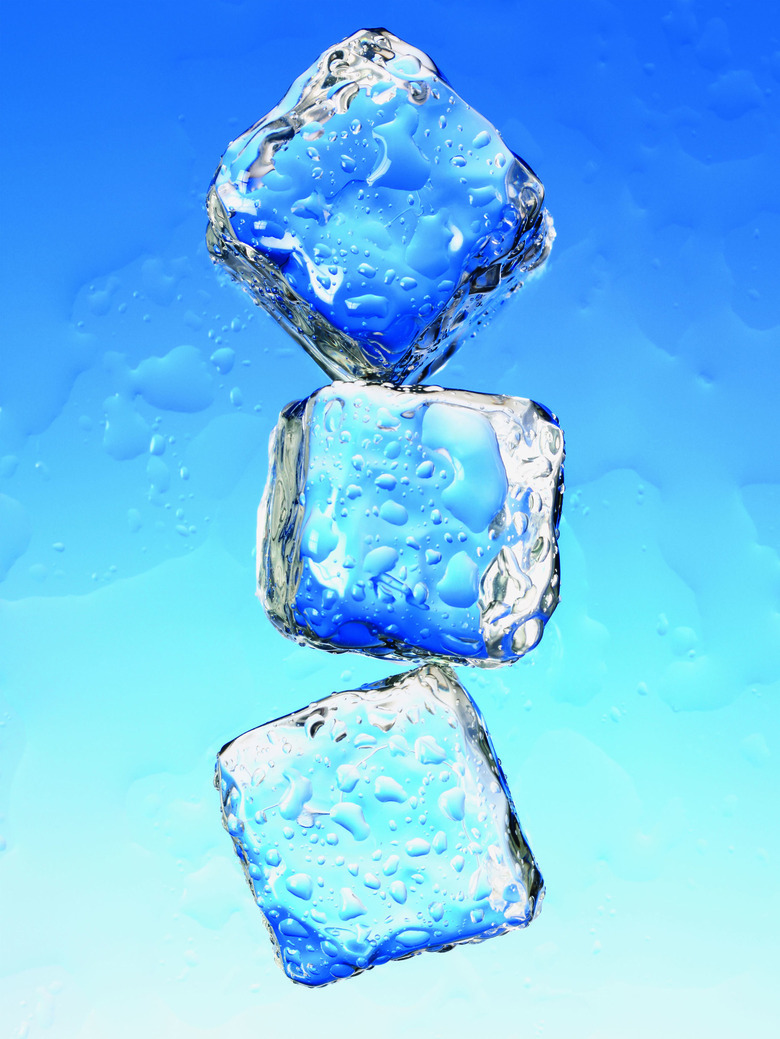Does The Density Affect The Rate That A Liquid Freezes At?
Liquids have differing densities. Vegetable oil is more dense than salt water, for example. There are already established freezing times for certain liquids, but if you experiment with liquid densities, you may be surprised by the resulting freezing rates.
Density Measurements
Density Measurements
One experiment is to determine a liquid's density, and then freeze it with several other liquids. The measurement of a liquid's density is determined by dividing the liquid's mass by its volume. Assume a density of 1.00 for water; vegetable oil has a density of .92, glycerin is 1.26 and so on. Determine the density of as many liquids as you want to test.
Freezing Differences
Freezing Differences
Now freeze several liquids at once. Notice that their freeze rates vary greatly. The differences in freezing rates do not always lie in the densities of the liquids, but in their chemical makeup. If they are pure, their freeze rate is constant. If they are solvents or mixed solutions, their freeze rate will vary. You can conclude that a liquid's density may affect its freezing rate, but its chemical composition is a more reliable determinant.
Cite This Article
MLA
Stratford, Michael. "Does The Density Affect The Rate That A Liquid Freezes At?" sciencing.com, https://www.sciencing.com/density-affect-rate-liquid-freezes-at-14294/. 24 April 2017.
APA
Stratford, Michael. (2017, April 24). Does The Density Affect The Rate That A Liquid Freezes At?. sciencing.com. Retrieved from https://www.sciencing.com/density-affect-rate-liquid-freezes-at-14294/
Chicago
Stratford, Michael. Does The Density Affect The Rate That A Liquid Freezes At? last modified March 24, 2022. https://www.sciencing.com/density-affect-rate-liquid-freezes-at-14294/
